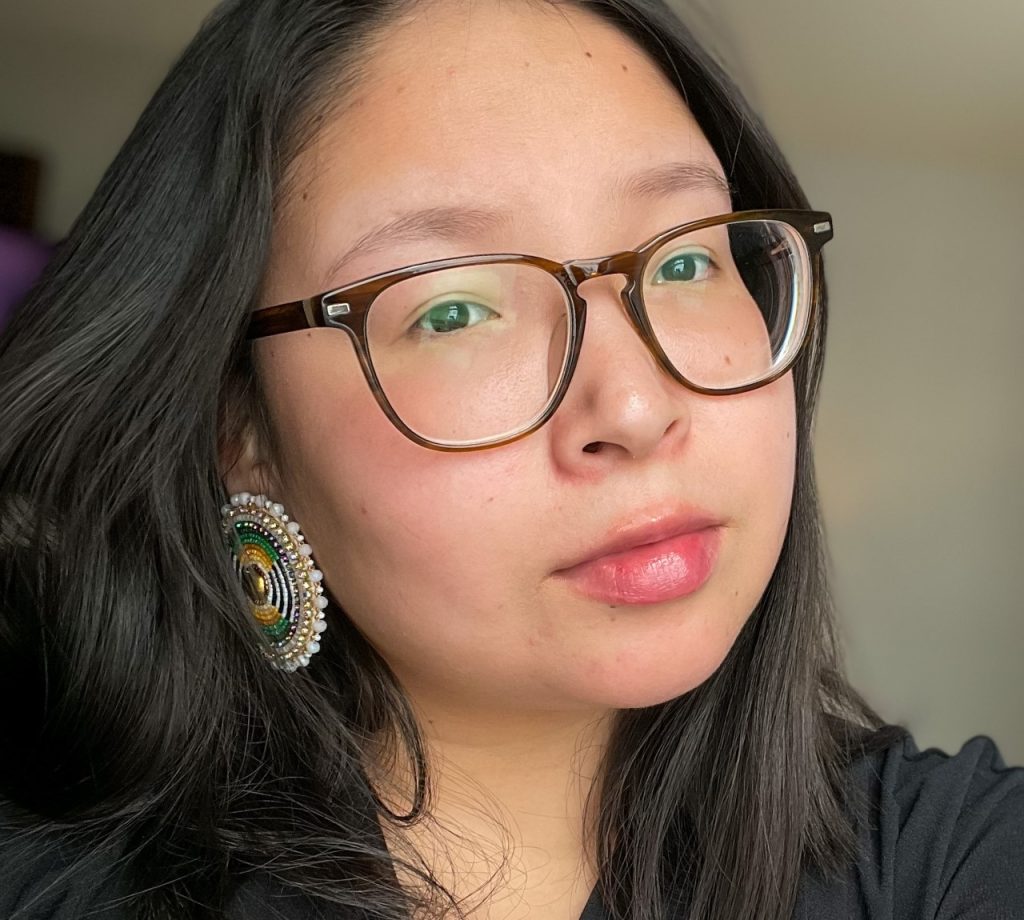Former Youth in Care speaks out on her experience in care
Former Youth in Care speaks out on her experience in care
Northwestern Ontario – May 14, 2023: As a Grade 12 student, Reina Foster and her younger brother, Liam, made the decision to return themselves into care after realizing their mother couldn’t support them.

“It was a very difficult act to go through, but our safety is what mattered most,” recalls Foster, now living in her home community, Lac Seul First Nation, with two of her own children.
Foster, 24, is sharing her story to ensure that children and youth in care today have a better life. She also wants to break the cycle of an intergenerational legacy that stems from the residential school era.
Her experiences are one of many as a part of the province-wide Children and Youth in Care Day, which is an opportunity to acknowledge children and youth in and from care for their strengths and unique identities, on May 14. This day allows agencies like Tikinagan to build better networks of support by increasing participation of community members and partners so that children and youth in and from care feel supported and thrive. It also helps to destigmatize views about children and youth in and from care by increasing awareness and understanding with the public.
“I can speak in the most honest terms, that I grew up way too quickly than I should have, that I am constantly self-reflecting on my younger days, and that I am aware of what happened to myself and my brother,” she said. “I feel as though I owe myself for what I lost as a child and I am recovering and healing from the hurt, inequalities and injustice that I have faced.”
Foster’s first experience in care began when she was just two-years-old. Reina and Liam were placed in a foster home where they experienced many forms of abuse emotionally, physically, spiritually and mentally. At school, they were bullied, other kids fought us, and they were taught that their culture was bad.
“We constantly wished to be free,” said Foster. “Being as young as we were, I do not recall telling anyone about what happened in that placement. But one thing I do recall is feeling powerless and unprotected.”
Reina remembers going to church as a young girl, but knew even then, it wasn’t part of her identity.
“I understood everything but deep down, I knew that was not meant for me. My spirit longed to be immersed in my culture and after my childhood, after my mother got us out of child care, I was able to explore my spirituality.
“The displacement I faced as a child did not break my spirit at all. Revitalizing her culture has helped bring a sense of identity, a sense of belonging and a sense of resiliency into my life.
Today, being deeply rooted and grounded in her culture guides her through the work she does as a leader and as an employee. Reina has worked at local, regional, provincial, national and global levels, accomplishing many her dreams before 20, including Youth Chief in Lac Seul. Today, Reina is a member of the Youth Council that advises Tikinagan’s Board and sits on the Youth Advisory Team, advocating for better experiences for children and youth in care.
“If any form of abuse still occurs in child care today, children and youth need to know that they have a safe place within the system; that they can trust their foster family, child care worker and child care agency. Healthy child development is essential in child care setting.”
Although the day is acknowledged on May 14, Tikinagan is encouraging its 30 First Nation communities it serves to honour children and youth through the entire month of May.
Children and Youth in Care Day is an opportunity to show our children in care that our community is here for them, we hear them and that we are a part of their Circle of Care.
Tikinagan shares the sacred responsibility held by parents, extended family and community members to care for children. When a child comes into care, it is important for each child to be part of a network of caring people. Every person who has an interest in the care of a child is asked to become a member of the child’s Circle of Care.
The Circle of Care may include the child’s parents and siblings, extended family members, the First Nation Chief and Council, Elders, the school principal and teachers, workers from other community resources, Foster Parents and other caregivers, and Tikinagan workers and supervisors. Although each has a different role in the Circle, the success of a child’s emotional security depends on teamwork. By working together in mutual cooperation and respect, a circle of healing will surround the child.
Tikinagan is looking for stories from current or former youth in care from their 30 First Nations. They want to know how they paved their own way, laid roots, and bloomed. Tikinagan also wants to celebrate those who believed in them, poured into, and encouraged them. To learn more, go to Tikinagan.org/CYIC2023.

